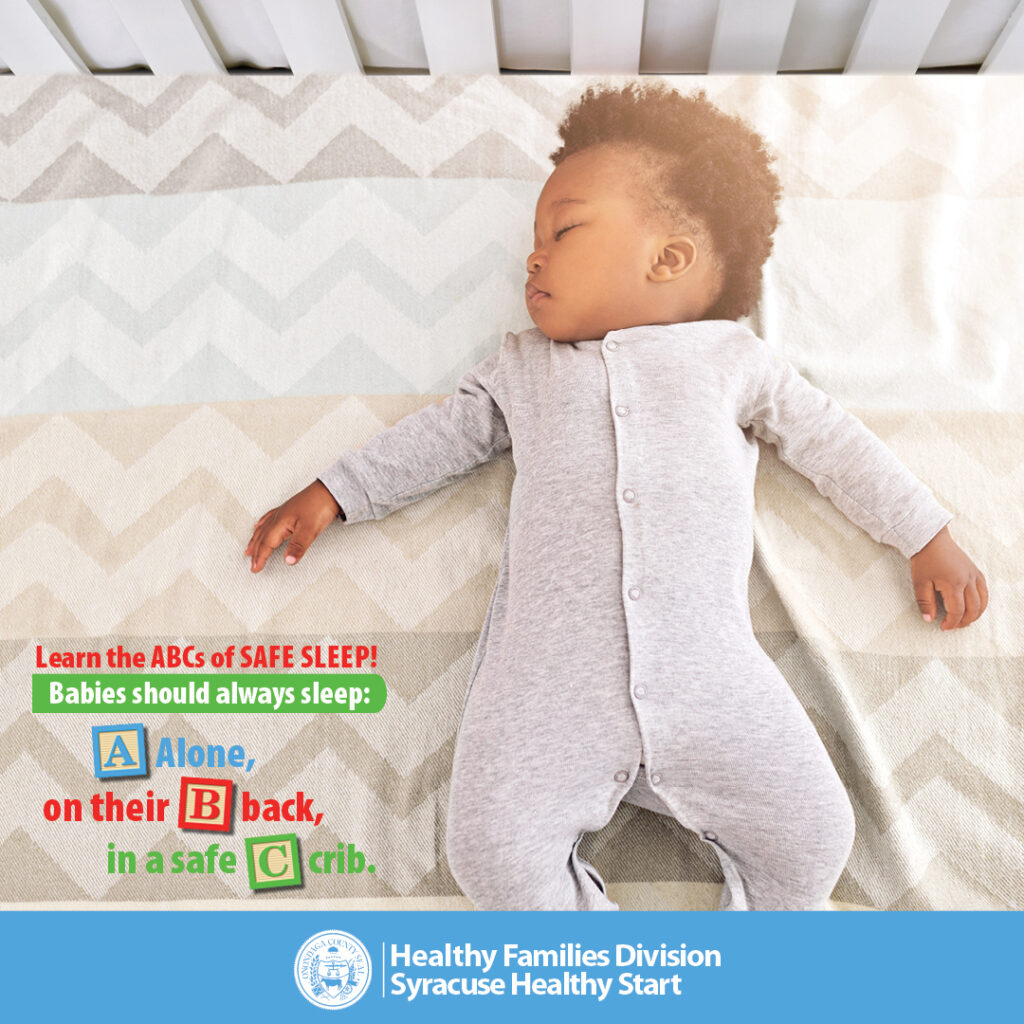By Sunny Jones, Public Health Educator
October is Sudden Infant Death Syndrome (SIDS) Awareness Month. SIDS is the unexplained death, usually during sleep, of a seemingly healthy baby less than a year old. SIDS is one of the leading causes of Infant Mortality (when a baby dies before their first birthday).
Many SIDS deaths can be linked to unsafe sleep. To reduce the risk of sleep-related infant deaths, including accidental suffocation and SIDS, the American Academy of Pediatrics recommends that infants sleep on their backs, positioned on a firm, empty surface. This surface should not contain soft objects, toys, pillows, or loose bedding.

The Mayo Clinic lists the following as risk factors for SIDS:
Sex. Boys are slightly more likely to die of SIDS.
Age. Infants are most vulnerable between the second and fourth months of life.
Race. For reasons that aren’t well understood, non-white infants are more likely to develop SIDS.
Family history. Babies who’ve had siblings or cousins die of SIDS are at higher risk of SIDS.
Secondhand smoke. Babies who live with smokers have a higher risk of SIDS.
Being premature. Both being born early and having a low birth weight increase your baby’s chances of SIDS.
Here are a few steps to help reduce the risk of SIDS and other sleep-related deaths:
- Get early and regular prenatal care.
- Avoid having baby sleep on a pillow, waterbed, couch, chair, or other soft surfaces.
- Do not let your baby fall asleep on a surface that isn’t made for sleeping babies, such as a car seat, a feeding pillow (like the Boppy pillow), or an infant lounger.
- The firm crib mattress should be covered with a fitted sheet and no other bedding. Keep soft objects and loose bedding out of the sleep area.
- Do not use a crib bumper pad. In May 2022, crib bumper pads were federally banned due to their link to infant deaths.
- It is recommended that infants share a room with their parents while they sleep but on a separate surface, like a bassinet or crib next to the bed until the child’s first birthday.
- Breastfeeding or feeding expressed breast milk can reduce the risk of SIDS.
- Dress your baby for the room temperature to avoid overheating. Signs of overheating include, sweating or feeling hot to the touch.
- Smoking or using alcohol or drugs during pregnancy or after birth can put the baby at risk for SIDS. Exposure to secondhand smoke can also increase a baby’s risk, especially if a parent who smokes shares the bedroom with a baby.
- Stay up to date on all recommended immunizations for you and your baby. Studies have shown that babies who receive their vaccines have a lower risk of SIDS.
